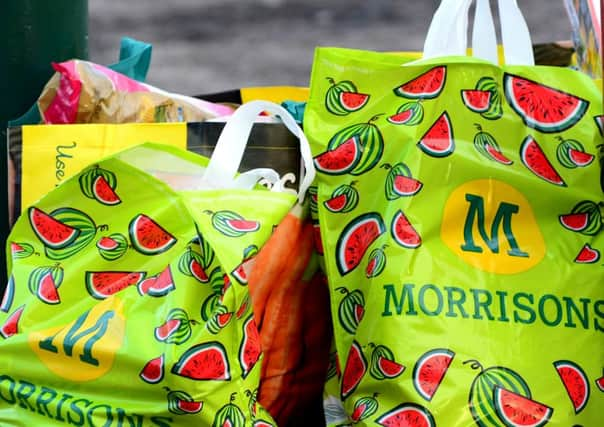Jayne Dowle: My special offer: Time for supermarkets to be straight with shoppers over prices


However, more often than not, I run out of the door and forget that crucial scrap of paper.
It ends up left behind on the kitchen table along with the reusable bags for life and the change for the parking meter.
This could be costing me money.
Advertisement
Hide AdAdvertisement
Hide AdApparently, if we all did remember our shopping lists religiously, we could each save more than £1,200 a year on our family food bills.
According to the Money Advice Service, an independent consumer body backed by the Government, leaving that list behind leaves us prey to confusing special offers and a myriad of ‘buy one, get one free’ deals.
These rip-off ruses still proliferate, despite the recent legal crackdowns forbidding the supermarkets from misleading and taking advantage of shoppers.
When we run like over-stressed headless chickens into the supermarket, those end-of-aisle “bargains” and multi-packs of baked beans and chocolate are just lying in wait, ready to part us from our cash. This means that three out of four of us regularly spend more than we mean to. It amounts to around £11.14 per shop on average, which is where that scary figure of more than £1,000 a year comes from.
Advertisement
Hide AdAdvertisement
Hide AdIt is good of the Money Advice Service to point all this out. We all need reminding. I know from personal experience that none of us score a perfect 10 when it comes to going shopping fully prepared.
However, although we might be disorganised, we’re not daft. And the bosses of the big supermarkets must surely be beginning to realise this. The latest sales figures speak for themselves, with our own Yorkshire born and bred retailers particularly badly-hit.
Leeds-based Asda and Morrisons, which is headquartered in Bradford, were the worst supermarket performers over the Christmas and New Year period.
Asda suffered the most with a 3.8 per cent drop in sales, whilst Morrisons saw sales decline 2.2 per cent, accordingly to new retail research data from Kantar Worldpanel. This is no blip. It’s part of a general trend which has been happening for several years now.
Advertisement
Hide AdAdvertisement
Hide AdAnd who are our supermarkets losing out to? The discount retailers, in particular Lidl and Aldi. Both European-based chains had a marvellous festive period, with sales at Lidl leaping 18.7 per cent and Aldi enjoying a sales boost of 13.7 per cent.
The determination of these discounters to impose themselves on the shopping choices of the nation is good news for the customer. It gives us more choice. And it saves us money. To be honest, though, I wouldn’t say that the things these places sell are particularly cheaper than items available in the major supermarkets such as Asda and Morrisons.
Perhaps a few pence or a pound or so on certain items, but they are no means the bargain basements they are often portrayed to be. And if my local Lidl is anything to go by, there is certainly by no means as much choice here as there is, for instance, in Morrisons.
On bad days, when they’re having a stock-take or a re-jig, the aisles of Lidl look more like the aftermath of a long, hard winter in communist Russia than a bright and welcoming retail cornucopia full of tempting goodies. If you come here looking for 10 different kinds of tinned tomatoes, you’re going to be severely disappointed.
Advertisement
Hide AdAdvertisement
Hide AdNo, we’re attracted to these stores chiefly because we know what we’re getting. Sometimes that might not be exactly what we want. This is why we will still head off to Asda or Morrisons, or indeed to Tesco or Sainsbury’s, or even (if we’re posh) Waitrose and Marks & Spencer. It is here that we will find that particular brand of cake or cooking sauce or frozen dessert.
It might not be what the bosses of Asda and Morrisons want to hear, but our shopping habits are diversifying. In the past few months, I’ve lost count of the number of friends who’ve told me that they no longer do one big weekly shop costing £100-plus, but nip out three or four times a week to different places to buy different things.
This might include the big superstores, the discounters, plus local markets, farm-shops and independent retailers. We might still be prone to disorganisation, over-spending and leaving the shopping list at home, but when it comes to making the choices that really matter we will vote with our feet and go where we can get the best choice and quality – and the best deal.
It’s easy for me. I’m not sitting there in the boardroom totting up the figures. I’m sitting at the kitchen table when I get home, attempting to make sense of a receipt still peppered with “multi-buys” and 2-for-1s. If I can offer any advice at all to those beleaguered bosses, I’d say accept that our retail habits are changing, give us good value for money and don’t confuse us any more than we are confused already. If you do that, your supermarkets might survive and – eventually – prosper again.